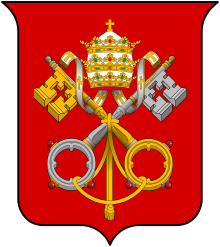Grand Masters of the Knights Templar
Each man who held the position of Grand Master of the Knights Templar was the supreme commander of the Poor Fellow-Soldiers of Christ and of the Temple of Solomon (also known as the Knights Templar), starting with founder Hugues de Payens in 1118. While many Grand Masters chose to hold the position for life, abdication was not unknown. Some masters chose to leave for life in monasteries or diplomacy. Grand Masters often led their knights into battle on the front line and the numerous occupational hazards of battle made some tenures very short.

| Part of a series on the |
| Knights Templar |
|---|
 Templar Cross |
|
Poor Fellow-Soldiers of Christ and of the Temple of Solomon |
| Overview |
| Papal bulls |
|
| Locations |
| Successors |
| Cultural references |
| See also |
|
|
|
Each country had its own Master, and the Masters reported to the Grand Master. He oversaw all of the operations of the Order, including both the military operations in the Holy Land and eastern Europe, and the financial and business dealings in the Order's infrastructure of western Europe. The Grand Master controlled the actions of the order but he was expected to act the same way as the rest of the knights. After the Pope issued a Papal Bull on behalf of the Templars, the Grand Master was obliged to answer only to Rome.
List of Grand Masters
.jpg)
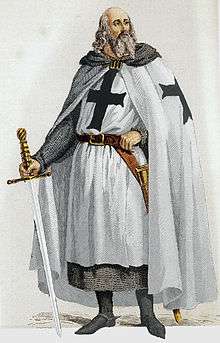
| # | Arms | Name | Time in office |
|---|---|---|---|
| 1. |  |
Hugues de Payens | 1118–1136 |
| 2. | 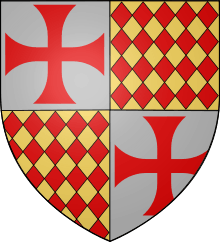 |
Robert de Craon | 1136–1147 |
| 3. | 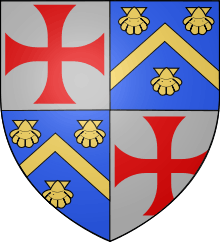 |
Everard des Barres | 1147–1151 |
| 4. | 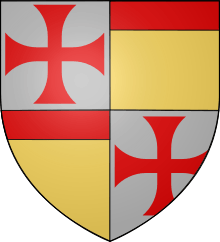 |
Bernard de Tremelay † | 1151–1153 |
| 5. | 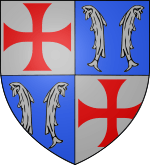 |
André de Montbard | 1153–1156 |
| 6. | 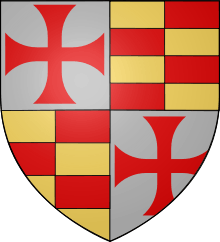 |
Bertrand de Blanchefort | 1156–1169 |
| 7. | 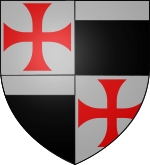 |
Philip of Nablus | 1169–1171 |
| 8. | 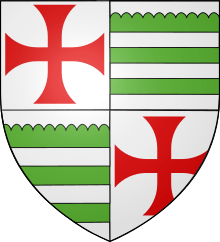 |
Odo de St Amand (POW) | 1171–1179 |
| 9. | 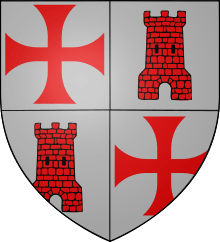 |
Arnold of Torroja | 1181–1184 |
| 10. | 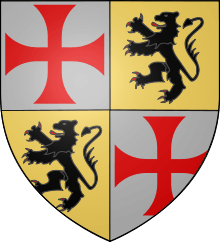 |
Gerard de Ridefort † | 1185–1189 |
| 11. | 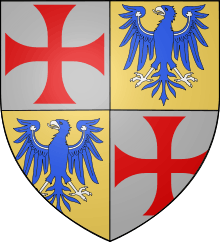 |
Robert de Sablé | 1191–1193 |
| 12. | 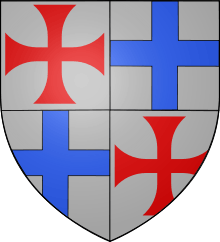 |
Gilbert Erail | 1193–1200 |
| 13. | 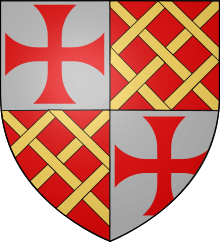 |
Phillipe de Plessis | 1201–1208 |
| 14. | 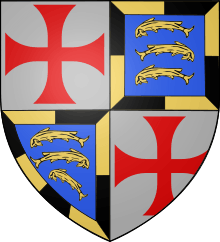 |
Guillaume de Chartres | 1209–1219 |
| 15. | 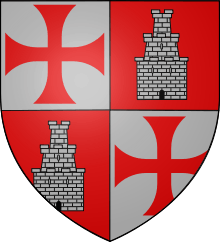 |
Pedro de Montaigu | 1218–1232 |
| 16. |  |
Armand de Lavoie (POW) | 1232–1244 |
| 17. | 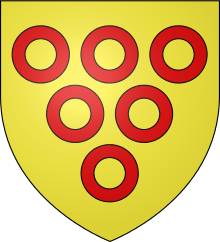 |
Richard de Bures (Disputed) | 1244/5–1247[2] |
| 18. | 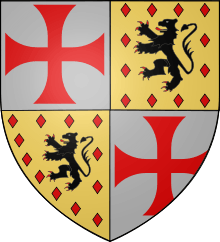 |
Guillaume de Sonnac † | 1247–1250 |
| 19. | 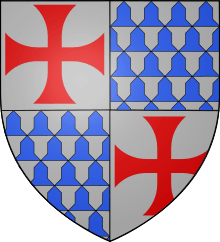 |
Renaud de Vichiers | 1250–1256 |
| 20. | 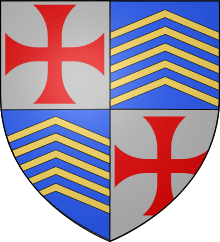 |
Thomas Bérard | 1256–1273 |
| 21. | 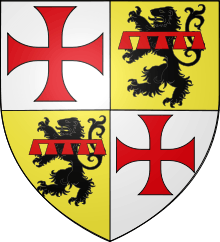 |
Guillaume de Beaujeu † | 1273–1291 |
| 22. | 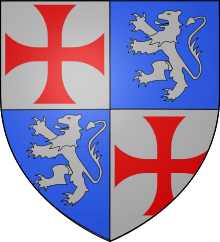 |
Thibaud Gaudin | 1291–1292 |
| 23. | 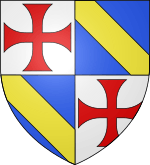 |
Jacques de Molay | 1292–1314 |
See also
- List of Knights Templar
- Grand Master (order)
- List of Grand Masters of the Knights Hospitaller
- Grand Magistry and Lieutenancies of the Order of the Holy Sepulchre
- Grand Masters of the Teutonic Knights
- Grand Masters of the Order of Saint Lazarus
- Knights Templar
Notes
- Wapenboek Beyeren (armorial) - KB79K21 - folios 001v (left) and 002r (right)
- Armand de Périgord was either killed or captured at the battle of La Forbie; authorities differ. Richard de Bures commanded the Templars until the election of Guillame de Sonnac; whether he was Grand Master is disputed. See Armand de Perigord (1178-1247), at www.templiers.org

